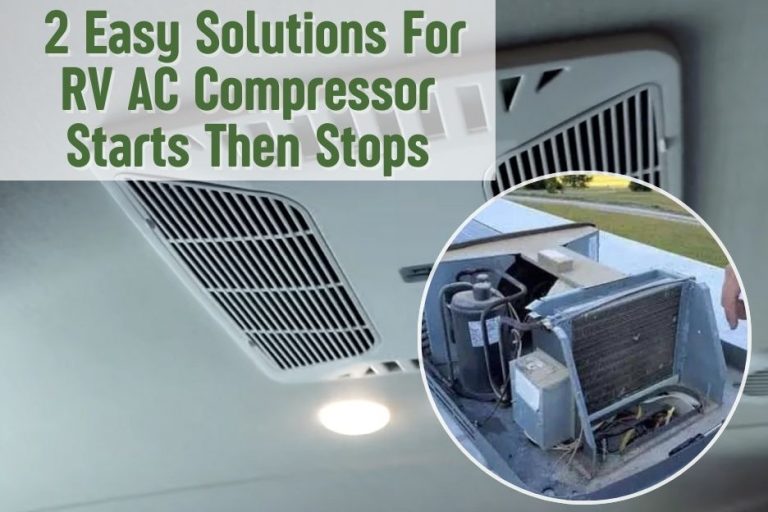What is a Fifth Wheel Camper?
A fifth wheel camper can be a great asset to your life. They provide the ability of increased space and storage that is not possible with a traditional travel trailer or van camper. However, this added size and weight also brings some significant questions to the forefront when it comes to truck camping skills.
This article will focus on how-to information for trucks equipped with fifth wheel hitches. Figuring out what you need to attach your fifth wheel camper to your vehicle will require some research on your part; we’ll get into contacting dealerships below.
This guide focuses on the skills and techniques that will help you maintain good form when it comes to preventing accidents, making hooking up easier, and having a fun trip down the road.
Table of Contents
Know Your Own Setup (Truck/Camper & Truck/Trailer)
Before we can educate others, we need to know how our own rig works! If your truck is built specifically for use with a fifth wheel trailer, there is nothing more important than knowing your setup.
For those of us who don’t have Fits (yet), this guide is useful as well; very few pickups are designed for load-hauling that cannot be accommodated by an open trailer camper shell.
An excellent example of a Fifth Wheel Camper Set Up!
It’s important to know whether your truck has the front suspension strength to handle additional weight, use an adequate ball/tongue weight on your hitch, and make sure you’ve got proper clearance under the truck bed. This is vital both for safety and handling purposes as well as making sure your camper doesn’t hit anything while moving down the road.
If you don’t already have this information readily available, we strongly recommend contacting your dealership’s parts department and inquiring about it.
They’ll be happy to help find the information you need so that you can take out any guess-work. As a side note, a lowered suspension is a red flag when it comes to properly loading your truck.
A ball weight of 550 lbs and a tongue weight of 600 lbs means the total weight on the fifth wheel hitches must be 1250lbs or less! Don’t let anyone tell you otherwise.
Using an open-style camper shell keeps the overall length down by eliminating rear axle/hitch clearance problems, allowing for back-in parking in many locations without backing up (versus nose-in), and significantly reduces wind resistance in comparison to a pop-up style camper.
There are plenty of options in this category that can accommodate a mattress in the cabover section, provide ample storage space inside, and even include bathroom and kitchen amenities. This is the kind of rig that’s perfect for an overlanding excursion to remote destinations, where resupply points are far apart and you may not be able to get fuel for your pickup.
If you do have a FIT, it’s even more important to understand what size (to scale) your truck is in relation to the camper – especially if you change vehicle types or purchase a used one.
Hitch manufacturers base their rating off of both the truck suspension height and wheelbase/tire package; these can change depending on how much lift is given with larger tires installed, so it’s critical that you’re aware of this information before hitting the road!
Yes, suspensions are adjustable, and trucks can be built to handle bigger tires (and therefore larger hitches), but this process is far more complicated than bolting on a few aftermarket parts.
It’s also worth mentioning that the FIT system was designed with load-hauling in mind – all options included an open bed for easy access to the truck bed itself, as opposed to drop-in or under-bed type 5th wheel systems where everything must be removed first.
Used examples of these types of setups are available, so if you find one within your budget range it may be possible to buy it and then decide whether or not you want it permanently installed: just don’t forget about those costly upgrades before you take off!
Just know that there is a reason why so many of these setups are sold without the fifth wheel hitch. It’s not for everyone, but it does have its place when done correctly.
And finally, if you do decide to go with an open-style camper shell setup, be sure your truck is under warranty before you leave! Many manufacturers will void factory warranties if any aftermarket parts are used on the truck itself – there are how-to guides in various locations around the internet detailing exactly what must be retained prior to installation of these types of accessories.
What’s the Difference Between a Fifth Wheel Camper and Other Types of Campers?
Fifth wheel camper is a unique type of camper. It allows the trucker to sleep inside the truck, which saves space on your campsite, and it pulls like a regular trailer.
Rather than having to use chains or hitches like you do with other types of campers (pop up campers) you can simply attach it to the hitch receiver that is on your truck.
This means that you don’t need another vehicle to tow this type of camper behind. Fifth wheel trailers are more expensive than other types of campers but they also come packaged with many luxury features that make camping easier (such as toilet and shower)
5th wheel camper models have been growing in popularity among North American campers, largely because they simplify the camping experience. Some models even have beds, bathrooms and kitchens built right in – which means you don’t need a large vehicle to tow it behind either.
Fifth wheel campers are convenient for many reasons:
- No need for a truck that is big enough to accommodate you and all your camping gear at once
- Easily attaches to hitch receiver on your truck
- No need for chains or hitches during travel, simply attach the camper with its hitch ball system
- You can sleep inside of your truck while traveling
- In some cases you can drive up to 50 feet before needing to reposition i.e. if you’ve been driving through traffic and would like to take a break before continuing on
What size of truck can be used to tow a fifth wheel camper?
Trucks that are able to tow fifth-wheel campers typically have heavy-duty suspensions and larger brakes. This is because you’re adding an extra 4500 pounds onto the back of your vehicle, so it needs some added oomph to get it going.
See also: How to Tow a Trailer With a Jeep
The last thing you want is for your truck to stop on the highway due to overheating; which also means that if you plan on traveling with this type of camper make sure you know its maximum weight allowance (so as not to let your engine overheat).
There is no “smallest” size of truck that can be used to tow a fifth-wheel camper – but it’s important to know that if your truck is too light for the camper then it can be dangerous.
If you will be traveling on highways or through mountainous regions with your fifth wheel camper in tow, then you’ll want to stick with something bigger than a smaller sized pickup truck.
Where Do I Put the Weight in My Truck When Using a 5th Wheel Camper?
An easy way of knowing where to put all the weight in your vehicle (regardless of whether or not it is carrying cargo) is by looking at the GVWR (Gross Vehicle Weight Rating). This means exactly what it sounds like – all of the weight in your car, including passengers and cargo.
Most signs that list maximum weights will include the number you should never go over. If your truck is rated for 7000 pounds and your camper’s weight rating is 6000 lbs, then it will be safe to assume that this combination can haul a maximum of 13000 lbs (6000+7000).
The only time the GVWR comes into play when using a 5th wheel camper is when you need to know how much total weight the hitch system on your pickup truck can hold.
For example: let’s say your pickup truck has a gross vehicle weight rating (GVWR) of 9000 lbs and you want to tow a fifth-wheel trailer that has a weight rating close to that amount. You’ll want to stick with something along these lines:
- Total Vehicle Weight: 9000 lbs.
- Towing Weight: 75% of vehicle’s GVWR, or 6750 lbs (so as not to damage the receiver on your truck)
What Other Added Features Should I Expect With a 5th Wheel Camper?
For ease of use, it is standard in most models for there to be an external hydraulic system that controls all aspects of the camper. This includes leveling, jacking up and stabilizing the unit so that it is level when you are parked.
You might feel like it will be too much work to need to get out of your car every time you park but really this is just another simple process that takes only a few minutes before you are able to relax in the comforts of your own home away from home.
Another added feature that is a definite convenience for many owners of 5th wheel campers is the rear ladder system. If you’ve ever had to try and climb up into a high bed, then you’ll know why this feature is so helpful. With a simple pull on a lever or by pushing a button, the bottom of your camper will turn into an easy access step onto which you can climb up and get inside quickly.
This also serves as another safety precaution in case it’s raining outside -because if you tried climbing into a rainstorm while standing on the side of your truck then it would be pretty hard to keep your footing!
Final Thoughts
A lot of new camper owners wonder where they’re going to put all of their daily belongings when the camper is on the truck. This usually isn’t a problem because most campers come with a storage box or center console that can be slid out from under the bed and used as an extra place to store items.
Well, there’s more – but those are all great features that you’ll find in most newer models of 5th wheel camping trailers!

I`m a current Law Enforcement Officer working within the Counterterrorism Bureau in New York State. I have been Camping for over 20 years. My styles of camping include tent, car, truck, van, and RV travel trailer. I have a YouTube channel where I teach all types of camping with an entertaining method: https://youtube.com/@TheSmallsRVAdventures






